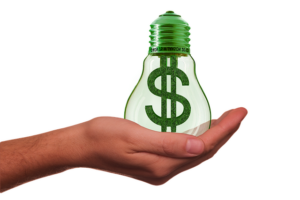According to a research, barely a third of listed companies are considered sustainable
Less than a third of companies listed on the stock exchange are considered sustainable based on the indicators of the EU’s green framework – draws attention to the EY study analyzing 11 member countries.

(Photo: Pixabay)
The results of the international consultancy’s first EU Taxonomy Barometer are based on information collected by the companies in the research sample during the analysis of taxonomy disclosures published in annual reports or non-financial reports between 1 January 2022 and 30 April 2022. It was recalled: the EU’s goal is to become carbon neutral by 2050, therefore it would regulate the economic activities of more and more companies; however, companies have difficulty even interpreting the criteria.
A complex system examines sustainability
With the Taxonomy Regulation introduced in 2021 to meet the specified climate and energy goals, the EU created a common language that unifies in all member states what constitutes sustainable economic activity and what does not. The task of the system is to determine whether a company has a positive impact on the environment using an objective standard when examining sales revenue, operating costs and capital expenditures. Ákos Lukács, head of EY’s area dealing with climate protection and sustainability services, said in the announcement: the regulation will gradually extend from large companies listed on the stock exchange to SMEs in the coming years. As a result, the number of companies that will be required to report may rise to nearly 50,000 in the EU. The regulation could affect up to 1,300 companies based in Hungary, he said.
Only two countries mostly met the requirements
According to the EY report analyzing the taxonomy reports published in the first financial year in 11 EU member states (Austria, Belgium, Denmark, Finland, France, Germany, Ireland, Italy, the Netherlands, Spain and Sweden), on average 27 percent of the income of the examined listed companies, while the operating 28 percent of their spending was considered sustainable on the continent. In both areas, Austria and Finland met the requirements of the regulation the most.
MTI
Related news
Essity in EU flagship project PROTEUS to develop bio-based super absorbents from algae
🎧 Hallgasd a cikket: Lejátszás Szünet Folytatás Leállítás Nyelv: Auto…
Read more >Related news
The economic sentiment index deteriorated in the euro area and the EU in February, but improved in Hungary
🎧 Hallgasd a cikket: Lejátszás Szünet Folytatás Leállítás Nyelv: Auto…
Read more >Spring whirlwind at the 60th anniversary EuroShop trade fair
🎧 Hallgasd a cikket: Lejátszás Szünet Folytatás Leállítás Nyelv: Auto…
Read more >The GKI business climate index rose in February
🎧 Hallgasd a cikket: Lejátszás Szünet Folytatás Leállítás Nyelv: Auto…
Read more >






